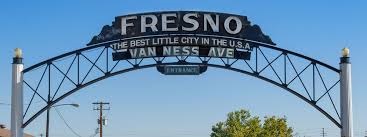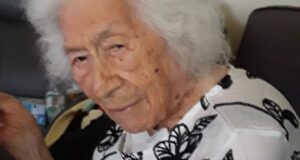FRESNO — Fresno Mayor Lee Brand has issued an emergency “shelter-in-place” order starting at midnight tonight and lasting through March 31.
In issuing the unprecedented executive order to the city’s more than 500,000 residents, Brand said, “We are literally making life and death decisions here.”
“The intent of this order is to ensure the maximum number of people self-isolate in their places of residence to the maximum extent feasible, while enabling essential services to continue, to slow the spread of COVID-19 to the maximum extent possible,” the order states. “All individuals currently residing within the City are called to shelter at their place of residence. To the extent individuals are using shared or outdoor spaces, they must at all times as reasonably possible maintain social distancing of at least six feet from any other person when they are outside their residence.”
The mayor said public health officials have told local leaders that because of a lack of testing they should take whatever their local numbers of confirmed cases of coronavirus are and multiply them by 50.
So far, Fresno County has reported two confirmed COVID-19 cases.
Mayors around the Bay Area joined together earlier this week to issue shelter-in-place orders now affecting more than 7 millions residents there.
“We’ve been advised to take action now and not wait for those (official) numbers,” said Fresno City Council President Miguel Arias. “If we under react, people could die.”
Fresno’s city council voted to approve the shelter-in-place order Wednesday afternoon.
Under the new directive, people will be allowed to leave their homes:
- To engage in outdoor activity provided they comply with social distancing requirements of at least six feet between people outside of the same family
- To perform any of the activities deemed essential
- To engage in activities or tasks essential to their health and safety or their family members’ health and safety
- To obtain necessary services or supplies like groceries or household necessities
- To care for a family member or pet in another household
- To obtain health care services
City leaders emphasized all utilities will remain on and that no customers will lose water, even for non-payment. The same is true for power as PG&E has pledged not to disconnect anyone’s power during the COVID-19 crisis.
All but “essential” businesses are being directed to close. Mayor Brand said city officials are relying on voluntary compliance for now but warned businesses could lose licenses for breaking what is now a city ordinance.
Other larger Valley cities including Clovis and Visalia could soon follow Fresno’s lead.
Under the ordinance, gatherings of more than 50 people are now prohibited.
Fresno businesses deemed essential include:
- Health care operations and essential infrastructure
- Grocery stores, certified farmers’ markets, farm and produce stands, food banks, convenience stores, and other establishments selling canned food, dry goods, produce, fresh meat and poultry, etc.
- Food cultivation, including farming, livestock, and fishing
- Businesses providing food, shelter, and social services
- Newspapers, television, radio, and other media services
- Gas stations, auto supply, and auto repair
- Banks and related financial institutions
- Hardware stores
- Plumbers, electricians, exterminators, and other providers of safety and sanitation for homes and businesses
- Mailing and shipping services, including P.O. boxes
- Educations institutions, provided they account for social distancing of at least six feet to the greatest extent possible
- Laundromats, dry cleaners, and laundry service providers
- Restaurants and other facilities preparing and serving food, but only for takeout and delivery
- Businesses supplying products to people who work from home
- Businesses supplying other essential businesses with support or supplies necessary to operate
- Businesses that ship or deliver groceries, food, goods or services directly to homes
- Airlines, taxis, and other private transportation providers for essential activities
- Home-based care for seniors, adults, or children
- Residential facilities and shelters for seniors, adults, and children
- Professional services — like legal or accounting — when necessary to assist in compliance with legally mandated activities
- Childcare facilities providing services for essential function employees, but they must do it in stable groups of 10 or fewer, children can’t change from one group to another, if there’s more than one group in a facility, they can’t mix, and the same providers must stay with the same children
The list of “non-essential” businesses include:
- Gyms and fitness centers
- Movie theaters
- Amusement centers
- Bars, nightclubs
- Salons, barbers, day spas
- Auto sales
- Other retail
- Clothing, bookstores
- Private clubs
- Industrial and manufacturing not related to essential function





